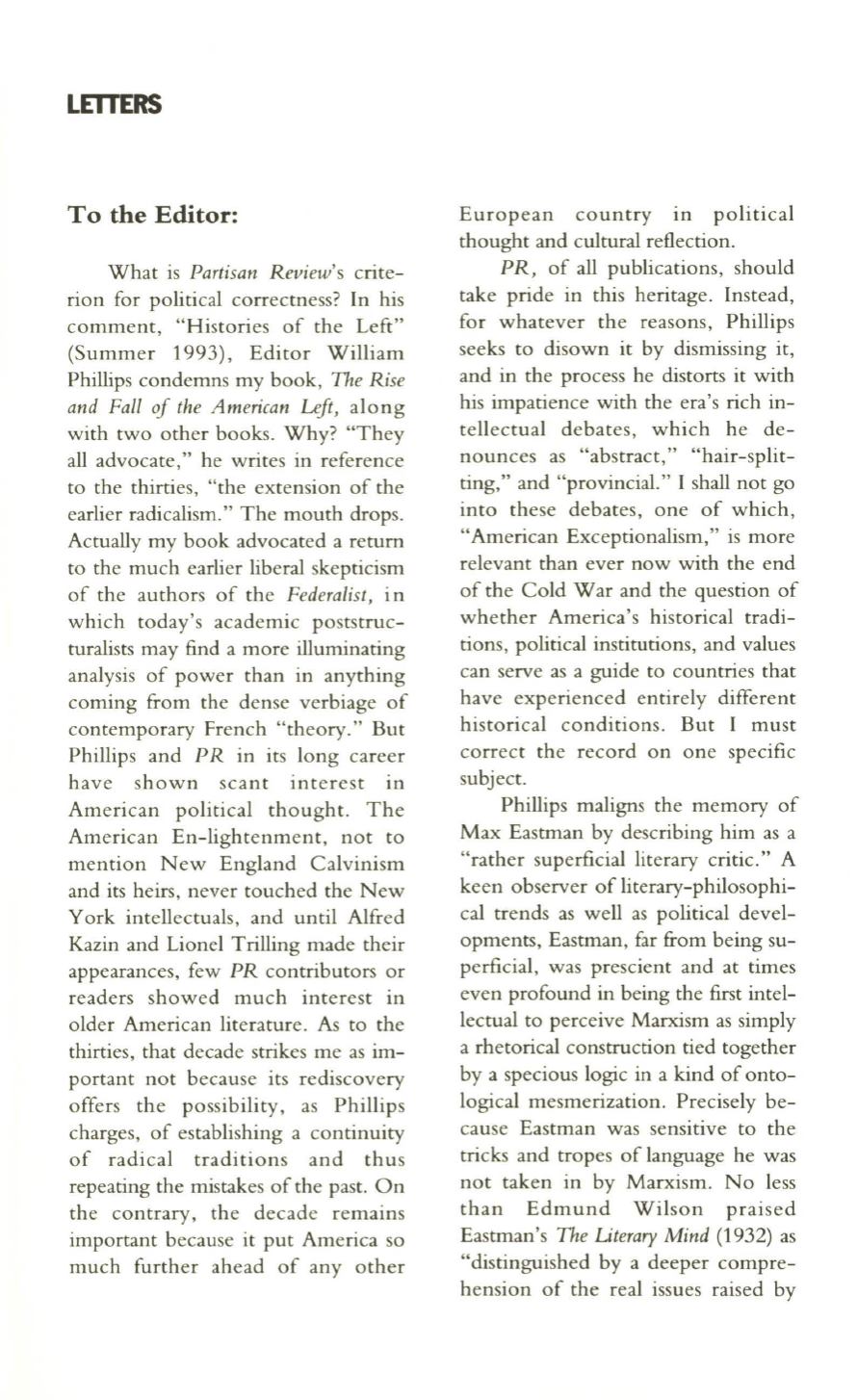
LETTERS
To the Editor:
What is
Partisan Review's
crite–
rion for political correctness? In his
comment, "Histories of the Left"
(Summer 1993), Editor William
Phillips condemns my book,
The Rise
and Fall of the American Left,
along
with two other books. Why? "They
all advocate," he writes in reference
to the thirties, "the extension of the
earlier radicalism." The mouth drops.
Actually my book advocated a return
to the much earlier liberal skepticism
of the authors of the
Federalist,
in
which today's academic poststruc–
turalists may find a more illuminating
analysis of power than in anything
coming from the dense verbiage of
contemporary French "theory." But
Phillips and
PR
in its long career
have shown scant interest m
American political thought. The
American En-lightenment, not to
mention New England Calvinism
and its heirs, never touched the New
York intellectuals, and until Alfred
Kazin and Lionel Trilling made their
appearances, few
PR
contributors or
readers showed much interest in
older American literature. As to the
thirties, that decade strikes me as im–
portant not because its rediscovery
offers the possibility, as Phillips
charges, of establishing a continuity
of radical traditions and thus
repeating the mistakes of the past. On
the contrary, the decade remains
important because it put America so
much further ahead of any other
European country in political
thought and cultural reflection.
PR,
of all publications, should
take pride in this heritage. Instead,
for whatever the reasons, Phillips
seeks to disown it by dismissing it,
and in the process he distorts it with
his impatience with the era's rich in–
tellectual debates, which he de–
nounces as "abstract," "hair-split–
ting," and "provincial." I shall not go
into these debates, one of which,
"American Exceptionalism," is more
relevant than ever now with the end
of the Cold War and the question of
whether America's historical tradi–
tions, political institutions, and values
can serve as a guide to countries that
have experienced entirely different
historical conditions. But I must
correct the record on one specific
subject.
Phillips maligns the memory of
Max Eastman by describing him as a
"rather superficial literary critic." A
keen observer of literary-philosophi–
cal trends as well as political devel–
opments, Eastman, far from being su–
perficial, was prescient and at times
even profound in being the first intel–
lectual to perceive Marxism as simply
a rhetorical construction tied together
by a specious logic in a kind of onto–
logical mesmerization. Precisely be–
cause Eastman was sensitive to the
tricks and tropes of language he was
not taken in by Marxism. No less
than Edmund Wilson praised
Eastman's
The Literary Mind
(1932) as
"distinguished by a deeper compre–
hension of the real issues raised by


